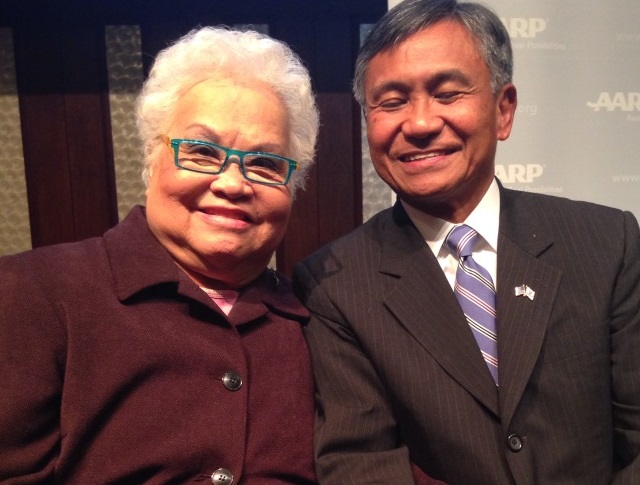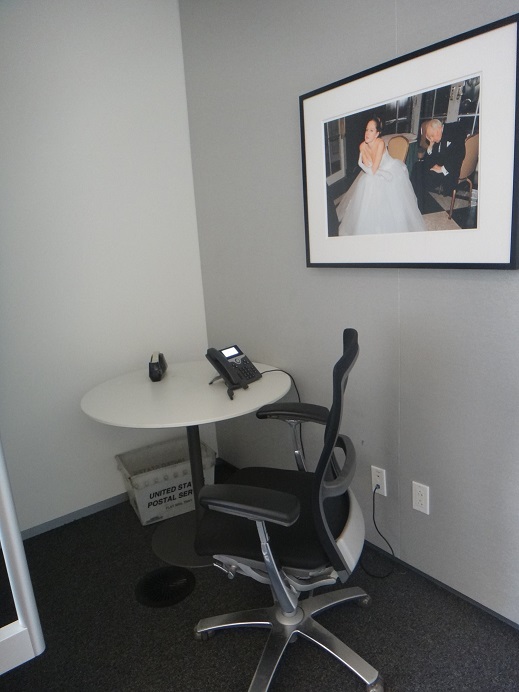No slowdown in demand for Filipino nurses, but hiring calls for new strategies

Alex Alejandrino is Administrator for RN Express, a boutique staffing agency founded by Registered Nurses. The FilAm Photo
Victoria, a nurse from the Philippines, came to RN Express feeling defeated and depressed. She lost almost half a million pesos to recruiters but still had no job waiting for her. Her fiancé, a Filipino American, made the decision for her: Come to the U.S. and let’s get married. On the strength of her fiancée visa, RNE was able to adjust her status. Within months, she was working in a nursing home.
RN Express, a boutique staffing agency in Midtown, tells it like it is. If the nurse applicant has no valid visa, it will not promise the moon and the stars. Neither will it sell false hopes. It will tell the applicant that RNE may not be able to adjust her status and find her a job.
The stark fact is that no agency probably can.
An applicant who is out of status, or who came to the U.S. using bogus documentation will find little assistance, except for friendly advice: ‘Come back when your visa is valid and we will help you.’
There are at least two ways Filipino nurses can find employment in the U.S. and that is through Employment-Based Category 3 (EB-3) for Registered Nurses, and Employment-Based Category 2 (EB-2) for nurses with managerial experience or with masteral degrees.
As of now, according to RN Express Administrator Alex Alejandrino, EB-3 visas filed on June 15, 2007 are being processed for petition.
What this means is, “They can be processed for green cards if there is a sponsor,” he said. The nurse is issued an I-140 document, which is only the first in a series of immigration documents that will form part of their working papers.
The waiting period from 2007 to the current year of 2015 is called the “retrogression” period.
“Eight years. It is probably the longest retrogression period (for nursing applicants),” noted Alejandrino, who is also the administrator for RN Express’s sister company Manhattan Employment Services, Inc. (MESI), which staffs health care workers for hospitals and nursing homes.
In the early years, it was easy to find a hospital to petition for sponsorship; not so in recent years as the U.S. began to see a deluge of foreign-educated nurses and began to streamline immigration guidelines.
Certain health care facilities began to use accredited staffing agencies to supply them with nurses. Agencies, like RN Express, became de facto employers and take on the expenses and risks of employing nurses when no hospital would do that. This recruitment process has been going on for many years and has led to stabilizing the nursing shortage in the country.
RN Express signs applicants to a minimum three-year contract and outsources them to waiting jobs. The agency can only do this if the applicant has a valid visa.
The waiting period for EB-2 petitions for specialized nurses is shorter because the retrogression period does not apply to them. This visa is for a nurse with at least five years of nursing experience or an MA in Nursing, said Alejandrino. “There is no retrogression.”
One is tempted to ask: Would a nurse manager in the Philippines still want to go through the hassle of applying to work in the U.S. and going through the rigors of complying with numerous tests and requirements? Alejandrino let the numbers speak: A supervisor in the Philippines earns approximately Php360K a year; in the U.S. that amount could be $64K.
RN is willing to work with nurses who are already in the U.S. as long as their visas are current, he said.
Ask what qualities RN Express is looking for in their nurses, Alejandrino replied, “Attitude and the ability to follow protocols.” As long as they are willing to learn, willing to do the work, and have a can-do attitude, there will be a job waiting for them.












